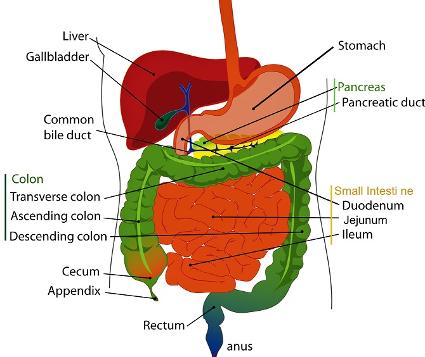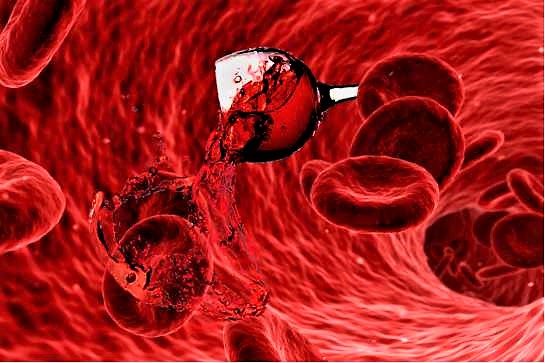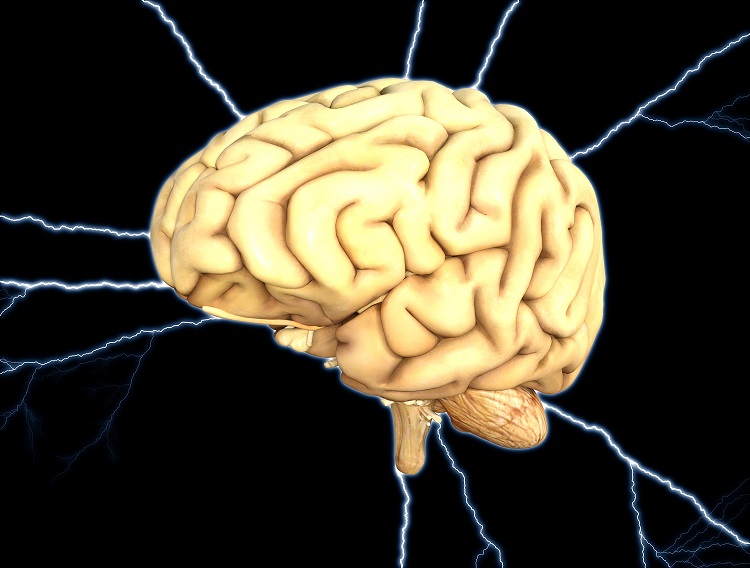In other words, alcohol alters your neurotransmitters. When alcohol is consumed, it releases two neurotransmitters that occur naturally in the brain. These neurotransmitters are gaba aminobutryric acid (GABA) and dopamine. But the alcohol releases these neurotransmitters in excess of what the brain usually uses. The GABA neurotransmitter calms you down and gives you a relaxed feeling. The dopamine neurotransmitter stimulates the feeling of pleasure.
This is why people get addicted to that “good feeling” they experience with alcohol.
But, as pointed out, alcohol causes too much of these neurotransmitters to be released and this leads to a host of health problems including night terrors, hallucinations, shortness of breath, high blood pressure and an increase in both aggression and depression.
The effects of the alcohol gradually lead to temporary amnesia and over the long term use of alcohol, will result in permanent brain damage and the development of Wernicke-Korsakoff Syndrome, a condition that impairs memory, vision and speech.
In much the same way that alcohol confuses the brain by forcing it into releasing neurotransmitters and endorphins that it doesn’t need to, alcohol tricks the pancreas as well. It makes it secret enzymes into itself instead of into the bloodstream. When this happens, the accumulation of excess enzymes results in inflammation of the pancreas. Over time, this inflammation increases the risk of cancer and reduces the organ’s ability to produce insulin which then results in the development of diabetes.
It doesn’t matter how much alcohol a person consumes - the human body can only metabolize a certain amount of alcohol every hour. How much it can deal with in a given period of time is dependent upon several factors, among which is the size of the liver and the body’s mass.
It has also been proven that different people have variations in the same gene and therefore, they carry different variations of the alcohol dehydrogenase and aldehyde dehydrogenase enzymes - and these enzyme variants work more or less efficiently than others.
In other words, some people’s bodies can break down alcohol faster than other people.
If the person’s body has a variation of the ADH enzyme that works rapidly and a variation of ALDH that works slowly - then when they consume alcohol, it is quickly broken down into acetaldehyde, but then that toxic substance circulates through the body for a long time, waiting for the ALDH to take over and finish the breaking down process.
This creates high levels of toxic acetaldehyde in the body which creates effects such as nausea, flushing in the face, and/or a rapid heart beat. This unpleasant experience of course, tends to make people who carry that variation of the gene to not consume alcohol very often.
On the other hand, a person who carries the variation of gene that breaks down the alcohol to acetaldehyde slowly and the acetaldehyde to acetate very quickly, will not experience all those unpleasant things by drinking alcohol, and this in turn makes them drink more often and in larger quantities.
This is the science behind why one person can drink lots of alcohol and not show any outwardly visible signs of addiction or health damage, while another person can take a single sip from a bottle of alcohol and
become an alcoholic!
But no matter which gene the person has, the acetaldehyde is still doing the same damage inside their body - it is just slower with some and faster with others.
In other words, from a physiological perspective, no matter whether you are drinking a single small glass of alcohol, or several gallons of alcohol - the toxic effects on the human body are identical. The only difference is that with larger amounts, the damage builds up faster. Sort of like the difference between wrecking your car in a head on collision which totals it rapidly, or driving for years on heavily salted roads, which eats up the metal slowly and over time, totals the car. The end result is the same!
So the question again is, “Would God endorse the use of such poison in His body temple - in any amount?”
“Does God talk through both sides of His mouth?”
“Does He tell us on one hand, to stay away from the tree of Knowledge of Good and Evil, and in the next breath tell us that it is OK to taste from that same tree as long as we only do it a little bit?”
Here are several reasons from a “health” perspective, why drinking only small amounts of alcohol is not wise.
The very nature of alcohol defiles/destroys our bodies the temple of God.
1 Corinthians 3:16,17 “Know ye not that ye are the temple of God, and that the Spirit of God dwelleth in you?
If any man defile the temple of God, him shall God destroy; for the temple of God is holy, which temple ye are.”
Even limited alcohol consumption is known to cause birth defects.
“In the study, maternal intake of alcohol less than 1 day per week was associated with about twice the risk of neural tube defects (NTDs), heart artery abnormalities, and cleft lip, with or without cleft palate (CLP), as compared with nondrinkers.”
https://www.nichd.nih.gov/news/resources/spotlight/Pages/062712-alcohol-drug-related-birth-defects.aspx
Many studies focus on the effects of heavy drinking, but the question is what constitutes heavy drinking—Consider this study. This is actually not much-- “Study participants included a cohort of 29 women who heavily consumed alcohol during pregnancy, e.g., two or more ounces of alcohol per day.”
Regular heavy drinking may cause at least one of the following problems:
Memory Loss, Liver diseases (esp. hepatitis and cirrhosis), Gastritis or pancreas damage, Hypertension,
Heart problems, Diabetes, Nervous System Problems (including dementia and confused disordered thinking), Cancer, Suicide and Mental Illness. https://www.medicalnewstoday.com/articles/157163.php
“Alcohol affects virtually every organ system in the body, even in small amounts. As little as 1 ½ ounces a day can lead to cirrhosis of the liver. Small amounts of alcohol over time can compromise the immune system, create vitamin and mineral deficiencies, and increase hypertension…” (Guilt-free Gourmet pg. 335)
“Drinking too much can weaken your immune system, making your body a much easier target for disease. Chronic drinkers are more liable to contract diseases like pneumonia and tuberculosis than people who do not drink too much. Drinking a lot on a single occasion slows your body’s ability to ward off infections – even
up to 24 hours after getting drunk.” https://www.niaaa.nih.gov/alcohol-health/alcohols-effects-body
The very nature of alcohol eliminates the idea of temperance, since large portions of those who drink a little cannot stop.
“A single glass of wine may open the door of temptation which will lead to habits of drunkenness.”
Healthful Living p. 113
“40% of teens who began drinking at 13 years of age or younger developed an alcohol addiction later in life.
This can be compared with the following:10% of teens who started drinking alcohol after 17 years of age
developed alcohol dependence… The younger you are when you start drinking, the greater your chance
of becoming addicted to alcohol at some point in your life. More than 4 in 10 people who begin drinking
before age 15 eventually become alcoholics.” http://inbalancecontinuum.com/outpatient/about/statistics
“According to the National Institute of Health (NIH), in 2015, 15.1 million American adults (6.2 percent of the population) had an alcohol use problem.” https://www.medicalnewstoday.com/articles/157163.php
Almost 1/3 of those who drink alcohol have some sort of an alcohol problem--“SAMHSA’s National Survey on Drug Use and Health (NSDUH) – 2014 (PDF | 3.4 MB) reports that in 2014 there were 139.7 million current alcohol users aged 12 or older, with 23% classified as binge drinkers and 6.2% as heavy drinkers. About 17 million of these, or 6.4%, met criteria for an alcohol use disorder in the past year.” https://www.samhsa.gov/atod/alcohol
“Alcohol is America’s drug of choice. No other substance is abused more often in this country than alcohol. One in every 12 adults suffers from alcohol dependence. This is a startling figure. Over 17.5 million Americans are alcoholics.” https://www.quitalcohol.com/information/why-is-alcohol-addictive.html
The very nature of alcohol makes one weak minded
“Alcohol interferes with the brain’s communication pathways, and can affect the way the brain looks and works. These disruptions can change mood and behavior, and make it harder to think clearly and move with coordination.” https://www.niaaa.nih.gov/alcohol-health/alcohols-effects-body
(“The frontal-lobe impairing effects are not confined to heavy alcohol users. Researchers found a measurable decrease in abstract thinking among 1,300 men and women who were social drinkers. These individuals drank as little as 1 alcoholic beverage per week…. Even with these low levels of use, assessments of mental function showed impairment. In fact, as alcohol intake increased their ability to think abstractly decreased even more. These changes could not be explained by intoxication because all assessments were done at least 24 hours after the last consumption of alcohol…Individuals with a blood alcohol level of 0.05 to 0.09 percent , less than the legal limit in most states, have at least nine times the risk of a fatal traffic accident than at zero. This is largely due to the fact that alcohol impairs the frontal lobe long before it impairs other parts of the brain such as the coordination center.” Proof Positive, Nedley, M.D. pg. 268
Alcohol destroys brain cells and blunts the ability of the frontal lobe of the brain to function correctly.
The World Health Organization (WHO) even tells us that drinking alcohol, even in small amounts, is not a good idea.
Speaking about all the publicity that is given to the use of moderate amounts of alcohol for heart disease prevention, they specifically say that publicity is “not the result of rigorous scientific research, but is to a large extent inspired by commercial purposes.” Moderate Drinking: serious warning by WHO specialists, by H. Emblad, WHO press release November 1, 1994
Here are some of their other statements on alcohol consumption.
“The less you drink, the better.”
“Alcohol consumption causes some of the world’s most serious health problems.”
“Drinking adversely affects a significant proportion of the population, not just a minority
of alcoholics or heavy drinkers.”
Moderate Drinking: serious warning by WHO specialists, by H. Emblad, WHO press release November 1, 1994
That is just a tiny little bit of the science evidence of the dangers of alcohol.
Now a lot of those who promote alcohol for communion and in small doses, like to trumpet the claims as mentioned above, that there are some health benefits gained from drinking red wine.
The concept that red wine can provide protective benefits to the cardiovascular system and decrease the risk of cardiovascular disease is based on the fact that there are high levels of antioxidants called flavonoids
that are present in red wine.
However, what these individuals fail to acknowledge is that all those exact same antioxidants and health benefits
are actually found in the fresh grape juice, long before it was fermented into alcohol.
This has been proven by studies where alcoholic wine and grape juice have been tested, with the same results having been achieved. Since the results are the same for the unfermented grape juice that doesn’t have alcohol in it as they are for the alcoholic wine - that proves that the beneficial components are in the grape juice itself, not in the alcohol.
In other words,
a person can get the EXACT same health benefits from drinking fresh grape juice and they won’t have the negative effects of the alcohol!
















